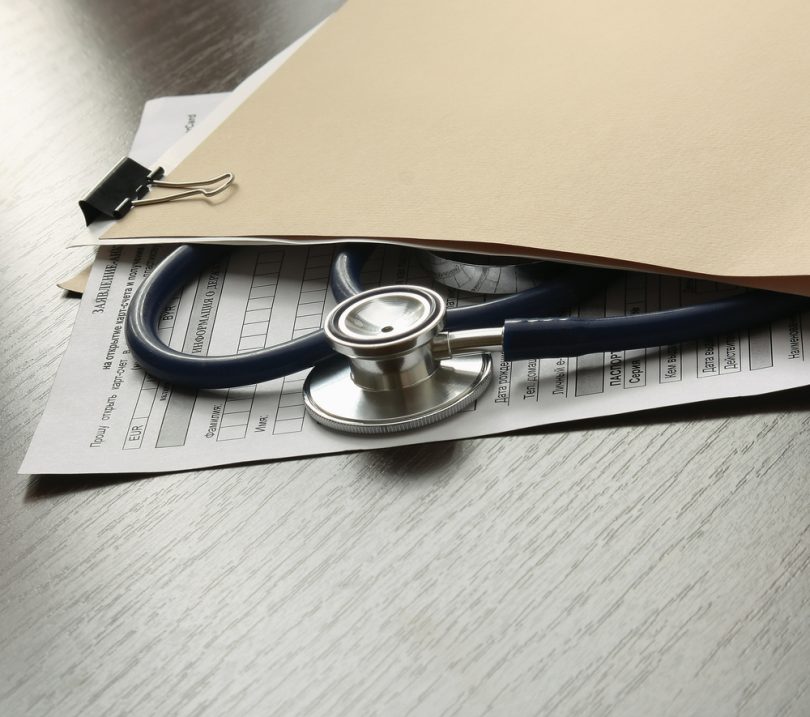Medical debt is not easy to deal with, and many people find themselves falling into a hole they can’t get out of. In fact, a CNBC report found that medical bills are the biggest cause of bankruptcy.
However, putting medical bills you can’t afford on a credit card often ends up causing more problems than it solves. Read on to find out why it’s usually a bad idea, and one circumstance in which it might be acceptable to charge your medical debt.
Credit cards are the most expensive form of credit
Credit cards come with a high price tag. The APR on a consumer credit card as of November, 2017 was 16.15%. On the other hand, medical bills include finance charges at far lower rates, and in some circumstances, it’s actually illegal for them to charge interest. Medicare and Medicaid patients, for example, cannot be charged interest fees or late fees. However, their bill can be sent to collections if it goes unpaid long enough.
What’s more, many states have laws in place that limit the interest rate medical providers can charge on medical debt. This interest rate is usually limited to around 12% or 14% as the legal maximum, but many providers charge less. There are even companies that offer personal loans geared toward paying off medical debt offer interest rates between 5% and 14%. Even taking out a personal loan to pay off your medical debt results in significantly lower rates, as long as your credit score is good.
Medical bills are far more lenient than credit card companies
You’ll find it much easier to negotiate with medical providers and convince them to lower your interest rate, forgive late payments, and even forgive a portion of your debt. You can even negotiate an interest-free payment plan, as long as you stick to it. Medical providers may also offer financial aid or a flexible payment schedule that is income sensitive. In sum, your medical debt is not set in stone when it is still in the hands of your medical provider.
Credit card companies, on the other hand, will never forgive your debt. The only way out is bankruptcy. Additionally, while they may forgive one late payment if you have an impeccable record, or lower your interest rate very slightly if you have great credit, you’re not going to get the same accommodations you would get from a medical provider, and your payment plan will not be income sensitive.
Unpaid medical bills don’t affect your credit…in the short-run
Payment plans with the hospital aren’t usually reported to credit bureaus, so even if you make a late payment, it won’t affect your credit. If you end up leaving the bill unpaid long enough to go to collections, however, that will be reported to credit agencies.
One of the biggest factors in credit scores is your debt-to-credit ratio. Because medical bills aren’t reported to the credit bureaus, that debt won’t drag down your credit score, no matter how big it is. However, if you choose to pay it off with your credit card, you’ll likely see an immediate drop in your credit score due to your increased debt-to-credit ratio. Even if the bill is sent to collections, you have a grace period before it shows up on your credit report during which you can negotiate. Credit card charges, on the other hand, show up immediately.
Once your medical bills are on your credit card, it’s hard to fix errors
Medical billing errors are actually very common. A study by the American Medical Association showed that one in ten bills paid by private medical insurers contained mistakes. According to the founder of Medical Recovery Services, eight out of 10 hospital bills they receive contain overcharges.
From duplicate charges to unjust denials to pay from your medical insurance provider, it’s likely that millions of Americans are overpaying their medical bills. When your bill is still in the hands of your medical provider, you can call them up if you spot a billing error and get it removed. Once it’s on your credit card, however, you’ll have to go through the process of disputing the charge with your credit card provider. Because you already agreed to pay the bill in full, it will be more difficult to have charges removed.
The one time it’s okay to put medical debt on your credit card
Some people choose to pay their medical debt with a credit card because they’ve found a great promotional financing offer. A good number of credit cards offer 12-month interest-free financing to people with good credit, and there are even medical credit cards that are specifically designed to help you pay off healthcare charges. These medical credit cards often come with promotional financing offers that allow you to pay off your medical debt at very low interest rates for 6, 12, 18, or even 24 months.
Paying off your medical debt with a credit card that has a low or 0% promotional APR can get you some big credit card rewards and help you avoid paying interest on that debt. However, it can be a very dangerous game. If you don’t pay off your debt in full by the end of the promotional period, or if you miss a payment, you’ll be hit with massive interest charges and end up paying even more than you would have with your medical provider.
Even if you’re positive you’ll be able to pay off the bill quickly given your income, you have to consider the possibility that you’ll get laid off. Unless you have an alternative plan for paying off your credit card bill in the event of a lay off, you probably shouldn’t take advantage of medical credit cards, no matter how tempting the offer.





thanks elizabeth, this was very helpful. the more info a person knows the better.